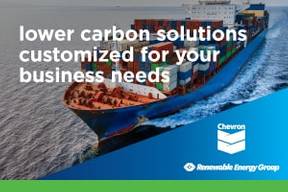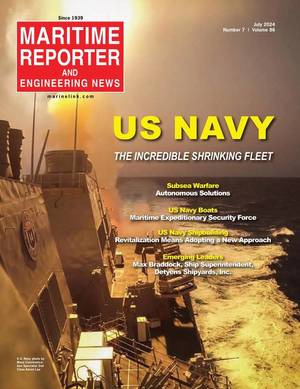Damen and CMA CGM Join Forces to Boost Containerships Efficiency
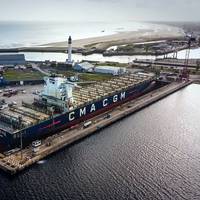
Around 10 of CMA CGM’s vessels are set to receive modifications and upgrades as part of the agreement the French shipping giant made with Dutch shipbuilder Damen Shipyards, aimed at increasing the efficiency of the ships.The upgrades and modifications will deliver fuel efficiencies of more than 10%, according to Damen.The upgrades will take place at Damen Shiprepair Dunkerque (DSDu) and Damen Shiprepair Amsterdam (DSAm), which between them have some of Europe’s largest dry docks…
GLO Marine and VMS Group Join Forces for ‘Green’ Vessel Retrofitting
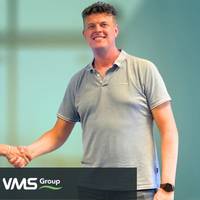
Retrofit specialist GLO Marine and expert in propulsion systems VMS Group have teamed up to expand their collaboration into comprehensive retrofits and vessel modifications, with a primary focus on decarbonization initiatives.In a strategic move towards advancing sustainable maritime practices, the GLO Marine-VMS Group partnership will prioritize retrofit projects and vessel modifications that align with the latest green technologies.The partnership stems from a series of ‘seamlessly executed’ retrofit project installations…
MAN and Alfa Laval Collaborate on Four-Stroke Methanol Solution
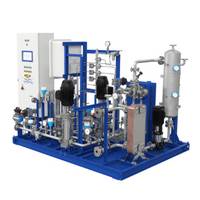
MAN Energy Solutions has announced an agreement with Alfa Laval to develop a methanol fuel-supply solution for MAN four-stroke engines and its fuel-injection technology. As a result, the first four-stroke engine types will be capable of retrofit to methanol operation from 2025.MAN Energy Solutions and Alfa Laval previously collaborated on decarbonising shipping in 2014 when the very first methanol solution for two-stroke marine engines was in development. To date, this is still the only such system in use at sea with over 150…
Report: Options for Retrofitting Ro-Pax with Hydrogen Propulsion Analyzed
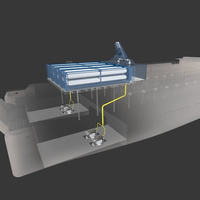
BMT and PA Consulting have explored the feasibility of retrofitting medium-sized Ro-Pax ferries with hydrogen propulsion and storage technology.The resulting white paper assesses the economic and technical feasibility of retrofitting existing vessels with hydrogen propulsion systems, presenting three retrofit alternatives with varying complexity, hydrogen demand and costs. These options involve dual-fuel engines with compressed gaseous hydrogen storage, hydrogen fuel cells with…
MerlinGroup to Retrofit Vessel with Stage V Engines
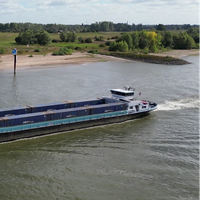
Netherlands-based inland shipping company MerlinGroup is starting a conversion project for the Sayonara to retrofit Stage V engines.The Sayonara will be equipped with two DAF MX 13-390 Stage V engines, supplied and fitted by CCM3 from Werkendam. The Sayonara is expected to resume operations on Dutch, Belgian and German rivers in Q4 2023.The retrofit will make it future-ready and able to sail anywhere with minimal emissions of harmful substances.The company, which operates on a participation model of cooperation between company and equal partners…
PSV Retrofitted for Hybrid Operation
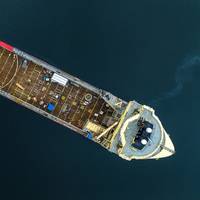
Skansi Offshore’s platform supply vessel (PSV), Kongsborg, has had a battery hybrid solution installed that is designed to reduce greenhouse gas emissions and fuel consumption.SEAM delivered, and was the system integrator of, its hybrid solution, the e-SEAMatic® BLUE. The 1800kVA/620kWh system was installed in a dedicated pre-built deckhouse, complete with necessary auxiliary systems – significantly reducing the installation time onboard the vessel.The objective of this integration was twofold: a significant reduction in fuel emissions…
Wärtsilä Offering Onboard CCS Feasibility Studies
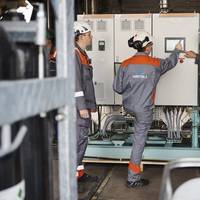
Wärtsilä is now offering carbon capture and storage (CCS) feasibility studies to shipowners and operators. Studies have already been conducted on a range of vessel types including ro-ro and ro-pax vessels, a drill ship, a container vessel and a gas carrier.The process takes four to six months of study and design work. Wärtsilä Exhaust Treatment’s experts are involved in ship design at an early stage to conduct engineering work to understand how CCS can be smoothly integrated once…
Wärtsilä to Convert Stena Line Ferries to Methanol Fuel
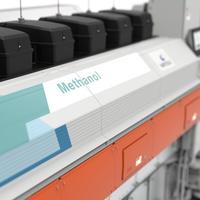
Wärtsilä has been contracted by Swedish ferry operator Stena Line to convert some of its vessels to operate with methanol fuel. The conversions will include the fuel supply system and engine modifications, as well as integrating the new installations with the ships’ existing systems. The full scope of the supply package will include fuel tank instrumentation and valves, transfer pumps, low pressure pump skid, fuel valve trains, methanol fuel pump units and the automation of the system, engine conversions, and automation upgrade for the engine control room.
Schottel EcoPeller Deployed For Norwegian Ferry Refit
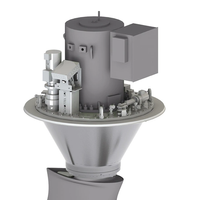
German maritime propulsion specialist Schottel announced that its Schottel Rudder Eco-Peller (SRE) is set to be installed for the first time in a retrofit project.For the project, a pair of four-bladed SREs type SRE 340 L CP, with an input power of 750 kW each, will be featured in a double-ended ferry from the Norwegian ferry operator Torghatten Traf-ikkselskap.Significant for this project is the fact that no hull changes or major steel work will be necessary, al-lowing work to be carried out by a local shipyard…
San Felice Completes Retrofit Ahead of Schedule
SeaQuest Shipmanagement announced that a client’s handysize bulk carrier completed her second special survey, dry-dock and Ballast Water Treatment System (BWTS) retrofit two days ahead of schedule and 7% below budget, despite the COVID-19 delays impacting many of China’s repair shipyards.The MV San Felice completed her retrofit on 5th March at COSCO Nantong under the supervision of a SeaQuest team, it said.According to a press release, the work list included: routine dry-dock works, hull blasting and painting, cargo holds blasting and painting, maintenance of the hatch cover hydraulic system, other minor deck and engine works, and the installation of an Alfa Laval PureBallast BWTS, including ballast lines modification, new electric cabling and remote control system.
Gibdock Momentum Builds On Variety
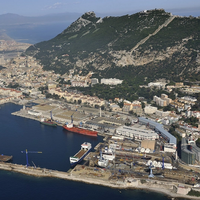
High levels of occupancy during the first two months of 2020 and strong forward bookings are sustaining momentum for Gibdock, following a surge in demand for the Gibraltar repair yard in the last quarter of 2019.One standout project involving significant complexity saw Gibdock undertake extensive repairs to Juvel at the end of 2019, after the Aker Biomarine fishing vessel suffered extensive fire damage off South America. Over several months, the 99.5-meter-long Juvel required retrofitting across four decks…
Ship Repair Market to Reach $40Bn by 2026
Global ship repair and maintenance services market is expected to grow from USD 18.89 Billion in 2018 to USD 39.93 Billion by 2026 at a CAGR of 7.04% during the forecast period from 2019-2026.According to report published by Fior Markets, the key contributing factors for the market growth are increase in the demand for new ships and activities, shortening of supply chains in ship repair and maintenance services, increased seaborne trade against the backdrop of recent economic boom, increase in the production of vessels.The bulk carriers section is anticipated to remain leading in the global ship repair and maintenance services market with USD 4.12 billion.
BW LPG Retrofits 12 VLGCs
World's largest gas shipping company BW LPG has exercised another option for the delivery and retrofitting of a further four dual-fuel LPG propulsion engines, committing to retrofit 12 of its VLGCs with LPG propulsion technology.The delivery and retrofitting of these 12 dual-fuel engines into BW LPG’s fleet will start as planned in 2020 and will be completed in the second half of 2021.The latest announcement follows BW LPG announcing back in August 2018 its initiative to deliver and retrofit four LPG dual-fuel engines in its VLGCs, and the exercising of an option on 10 February 2020 for an additional four dual-fuel engines.Anders Onarheim, BW LPG CEO said: “The Board and Management at BW LPG continue to emphasize a deep corporate commitment to sustainable development.
Wärtsilä's LFSS Undergoes Engine Testing
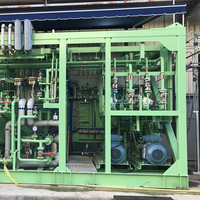
Wärtsilä’s liquefied petroleum gas (LPG) Fuel Supply System (LFSS) has completed full scale testing with a full sized two-stroke marine engine burning LPG as fuel. This was the world’s first such testing protocol, according to Wärtsilä.It was initially decided to retrofit the Wärtsilä LFSS to four very large gas carrier (VLGC) vessels owned by Oslo-listed BW LPG. However, following the tests, in which the performance exceeded expectations, BW LPG decided to exercise their option to retrofit an additional four vessels, making a total of eight ships to benefit from this technology.
Ulstein Retrofits HMC Vessel to HLV
The marine contractor in the international offshore oil and gas and renewables industry Heerema Marine Contractors (HMC) contracted Ulstein Verft shipyard in 2018 to provide design and engineering services to convert their deepwater construction vessel Aegir into a fast sailing heavy lift vessel (HLV).The vessel is now converted into a dedicated offshore heavy lift vessel. Aegir’s already massive 4,000-ton main crane and the fact that her hull design is based on Ulstein’s SOC 5000 heavy-lift vessel design, is a key benefit in this development."Nevertheless, innovative solutions and smart engineering work is needed to make the vessel into an efficient asset for the new markets that Heerema is targeting…
Mitsubishi Installs Marine SOx Scrubbers
Mitsubishi Shipbuilding announced that its DIA-SOx R, , the marine SOx scrubbers, installed on two ultra large containerships recently gained approvals from the the flag states.The first 2 units of the scrubber retrofitted onboard ultra-large container ships got approvals from the classification societies, Lloyd's Register and Nippon Kaiji Kyokai, respectively after confirmation of the excellent result of sea trials and consequently also got approvals from the Flag States, Panama and Singapore.Those 2 ships, whilst continuously using the existing heavy fuel oil, can conform the new SOx emission regulation requirement even after being strengthened as from January 1…
Silverstream in Retrofit Design Pact with ICE
United Kingdom-based maritime company Silverstream Technologies has entered into a framework agreement with European ship design consultancy International Contract Engineering (ICE) group for worldwide installation design services for retrofitting of the Silverstream System.Silverstream System is a patented air lubrication system designed for reduction of friction between ships’ hulls and seawater. The company claimed that it the system has been proven to deliver substantial fuel savings and an associated reduction in GHG emissions.Silverstream Technologies is a founding member of the Global Industry Alliance for combating pollution within shipping.Steinar Draegebo…
China Virus May Delay Scrubber Retrofits
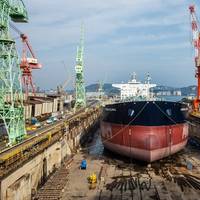
Shipping companies may face delivery delays of vessels fitted with exhaust gas filtering equipment that complies with anti-pollution rules that kicked in this year due to the impact from the virus outbreak in China, shipping sources said on Friday.A Mitsui OSK Lines executive said many vessels were in Chinese docks to get so-called scrubbers installed to meet the new emissions rules but with four Chinese provinces asking companies to extend the Lunar New Year holiday by a week, to Feb.
Eidsvaag Converts PSV to Fish Feed Carriers
Norwegian company that specializes in the distribution of fish feed Eidsvaag has contracted Damen to convert platform supply vessels (PSV) into highly demanded fish feed carriers.Damen Shiprepair Amsterdam (DSAm) is converting a platform supply vessel into a fish feed carrier that will improve efficiency and sustainability in the Norwegian aquaculture industry.“One of the main things that made Damen stand out as a strong candidate in the tender process was their previous experience with the vessel,” explains Vidar Eidsvaag, general manager and owner at Eidsvaag. The vessel, now renamed Eidsvaag Opal, was part of a six-vessel order Damen built for the offshore supply company…
Damen Completes Triple Refit for CMV
Damen Shiprepair Amsterdam has completed extensive annual repair and maintenance programs on three cruises ships operated by the UK’s leading independent cruise line Cruise and Maritime Voyages ahead of their winter season.The triple cruise ships are Magellan, Marco Polo and Astor.First to dock at Damen Shiprepair Amsterdam (DSAm) was the 222-meter, 46,000 GT Magellan for a four-week schedule of works that included comprehensive cleaning and inspections, repairs to the main and auxiliary engines, the overhaul of the bow and stern thrusters and the servicing of the liferafts. As work proceeded, additional repairs were identified, an occurrence that was shared by all three vessels.
Safe Bulkers Signs Pact with Alfa Laval
The international provider of marine drybulk transportation services Safe Bulkers has entered into a service agreement with Alfa Laval for 20 scrubber units on its vessels to meet the requirements of IMO 2020.According to the shipowner, the agreement is to minimize down time, enhance regulatory compliance and safeguard scrubber performance over the life-time of the vessel.The agreement provides for a flat yearly fee, lifecycle-oriented services from the Alfa Laval PureSOx 360° Service Portfolio, including remote monitoring of scrubber performance through connectivity module, service kits, minimum inventory of genuine Alfa Laval spares parts on board and ashore for remote trouble-shooting and sensor calibration by exchange.In addition…
Boluda Towage Retrofits Union Koala
The provider of towage services Boluda Towage Europe said that it's tugboat ‘Union Koala’ was officially certified for compliance with the IMO Tier III standards. The converted tug returned to service during a ceremony at the ABC Tower in Zeebrugge, Belgium."Boluda Towage Europe has passed a new milestone: it is the first towage company in Europe to convert an existing tugboat, complying with the IMO Tier III standards. The company embarked on this project together with supplier Anglo Belgian Corporation with the aim of reducing shipping emissions and addressing local port authorities’ demand for cleaner operations in the port area," claimed a press note from the company.To ensure that the vessel is complying with the IMO Tier III standard…
SMS Completes Dredger Refit
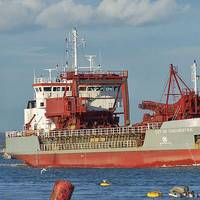
UK ship repairer SMS Southampton said it has completed a dredger refit in the port of Southampton for Tarmac Marine.Work on the 1997-built City of Chichester was completed in a dedicated, controlled berth alongside at Williams Shipping’s berths in Southampton. SMS took ownership of the site, to include permits-to-work and site security, as well as the program of repair works.The program included the feeder hopper refurbishment (completed in SMS’s nearby workshops), the discharge grab replacement…


